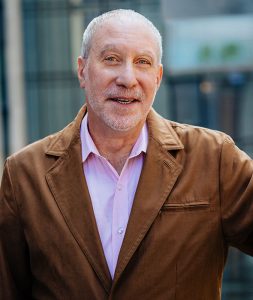Relationship Therapy
Do Romantic Relationships Make Life Difficult?
 Are you worried about the direction your marriage or partnership is headed? Even if your relationship was initially peaceful, it may now feel more like a war zone. If so, you’re probably growing tired of the constant arguments and power struggles.
Are you worried about the direction your marriage or partnership is headed? Even if your relationship was initially peaceful, it may now feel more like a war zone. If so, you’re probably growing tired of the constant arguments and power struggles.
Do you feel unfairly attacked and chronically unsatisfied? Your partner may be picking fights, having mood swings or otherwise acting out. Even when logic is on your side, your spouse or partner may insist they are right or play the victim during arguments. They may also be keeping secrets or emotionally distancing themselves.
Is your partner quick to point out your shortcomings and slow to appreciate your contributions to the relationship? While you may see the potential in your marriage or partnership, your partner may be putting their needs ahead of your own, leaving you feeling unappreciated, deflated and hopeless.
Do you doubt whether it’s even possible to get your relationship back on track? You may feel powerless, especially if your partner seems unwilling to compromise. While only your partner can control how they behave, you can still control your own actions. With couples therapy, you can learn how to relate to your partner in a way that deescalates conflict and honors both of your needs.
Relationships Aren’t Just Happily Ever After
Many people enter relationships with unrealistic expectations. Culturally, the concept of love has been romanticized, aggrandized and commoditized. The idea of marriage has been rose-colored by the Disney delusion of “happily ever after.” Many people seek this idealized version of love—and often think they’ve found it—only to watch it slip away.
Frustrated and disappointed, many people seek a scapegoat for their romantic disillusionment. Many blame their spouses for their marriage problems, making them feel angry and resentful. Other people blame themselves for their relationship issues, setting themselves up for shame and self-loathing. In truth, it takes two to tango. In many relationships, both partners follow their own feelings, seriously stepping on each other’s toes in the process.
 It also turns out that the origin of many people’s relationship problems is actually prior to the relationship itself. During childhood, people learn fundamental lessons about what to expect from others and how to relate to them. These expectations and assumptions guide their thoughts and actions in every area of their lives, even if they don’t realize it. The innate psychology of their partners likewise shapes the dynamics of the relationship, sometimes in toxic and destructive ways.
It also turns out that the origin of many people’s relationship problems is actually prior to the relationship itself. During childhood, people learn fundamental lessons about what to expect from others and how to relate to them. These expectations and assumptions guide their thoughts and actions in every area of their lives, even if they don’t realize it. The innate psychology of their partners likewise shapes the dynamics of the relationship, sometimes in toxic and destructive ways.
Going through life without understanding your own psychology can be extremely damaging to you and your partner. However, it’s possible to learn to see situations for what they are rather than through the lens of misguided hopes and expectations. With the help of an experienced relationship therapist, you can make calmer, more conscious choices that strengthen your bond with the person you love.
Couples Therapy Can Help You Both Balance Your Needs
We are all self-oriented. That’s human nature. But that doesn’t mean our relationships have to be all about us. Relationship therapy can help you worry less about who is “right” in a given situation and focus instead on how to relate to each other in a respectful and mutually satisfying way.
Arguments are usually more complex than they appear at first. For example, that fight last week about whose turn it was to take out the garbage might have more to do with psychological baggage than garbage bags. If you were often verbally attacked and unappreciated in your earliest relationships, you might be more sensitive to even the most innocent requests, perhaps viewing them as criticisms.
Becoming more aware of your psychological tendencies will allow you to see situations at face value and react less defensively. The lessons you learn in therapy will also help you to better understand your partner and why they act the way they do. When you start to see things from their perspective, you’ll be less likely to get angry and find it easier to show compassion.
Maybe your past relationships haven’t given you much opportunity to practice relating to others in healthy ways. The positive, affirming atmosphere I provide as your therapist will allow you to experience firsthand the benefits of healthy relationships while learning how to communicate in thoughtful, non-confrontational ways.
It takes time to overcome bad habits, but relationship therapy can help you recognize when you’re heading for trouble. I’ll teach you important psychological concepts such as signal anxiety, psychic conflict and the idea of the “superego” to help you take notice of escalating discord. When you do, you will have the opportunity to ask yourself key questions such as “What’s driving me?” and “How will this work out if I continue to act this way?” You’ll realize that you have a choice: either to doggedly defend your side or to seek solutions that heal and strengthen your relationship.
Many people are in the habit of viewing relationship issues as all or nothing: they’re either the aggressor, or the victim; they either win an argument, or they lose. There’s no middle ground. If you and your partner are stuck in black-and-white perspectives like these, you’re probably experiencing a lot of emotional volatility in your relationship. Therapy can help you find the gray areas that lead to compromise, mutual respect and a steadier state of satisfaction.
Wonder Whether Couples Therapy Can Help?
My partner is the one causing all the problems. Shouldn’t they be the one in therapy?
 Most people could benefit from therapy, and that likely includes your partner. If they are interested in individual or couples counseling, I would be happy to see them. However, if your partner isn’t ready to acknowledge their role in your relationship problems, no one can force them. Instead of focusing on them, let’s focus on what you can control: your own feelings, thoughts and behaviors.
Most people could benefit from therapy, and that likely includes your partner. If they are interested in individual or couples counseling, I would be happy to see them. However, if your partner isn’t ready to acknowledge their role in your relationship problems, no one can force them. Instead of focusing on them, let’s focus on what you can control: your own feelings, thoughts and behaviors.
Are you going to take sides?
Many people who are considering getting marriage or relationship counseling worry that their therapist will side with their partner, but it’s not my job to take sides. Uncovering the psychology underlying your conflicts—and finding opportunities for healing and cooperation—is much more important than assigning blame. I can help you stop fixating on recent arguments and concentrate on how you’ll resolve your differences moving forward.
Is couples therapy really worth the investment?
Good therapy takes time and money, but deciding to ignore your relationship problems also has a cost. What emotional (and perhaps financial) price are you already paying for being in this situation? How much more will it cost you in spent happiness if you continue down this road? If you have children, what lessons are you inadvertently teaching them about how to relate to others, and how might that hobble them in their adult relationships? If you want to create a better future for yourself, your partner and your children, therapy will be worth the investment.
Why Keep Suffering When You Both Can Feel Satisfied?
Let me help you heal past hurts and build a relationship founded on caring and compromise. Contact me to discover for yourself how satisfying it can be to start working with your partner instead of against them.








